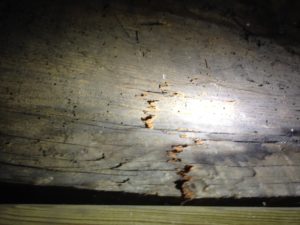
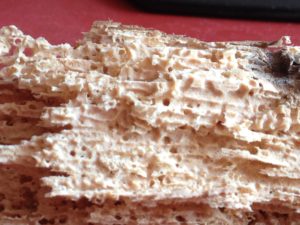
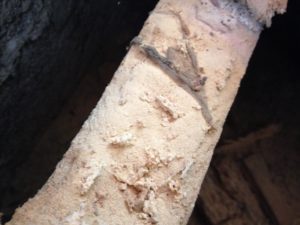
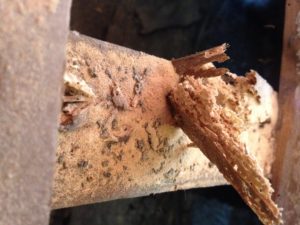
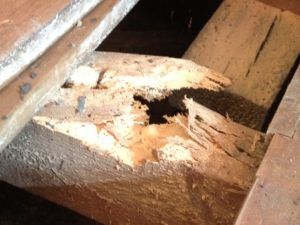





People are genuinely worried about dry rot,
sometimes for very good reasons…
This…..
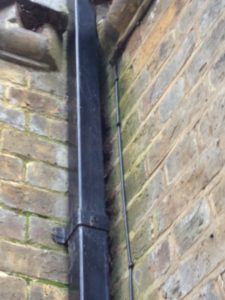
Caused this…….
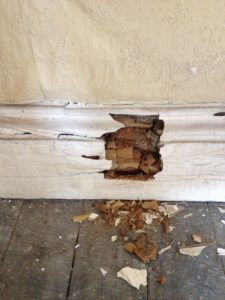
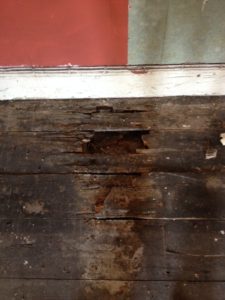
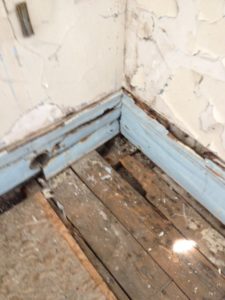
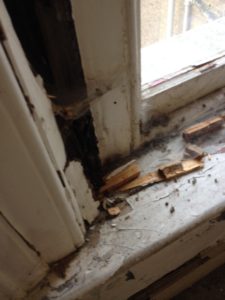
Became this……..




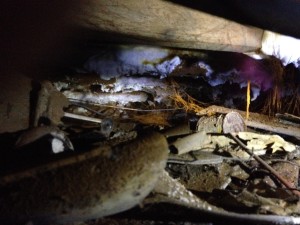
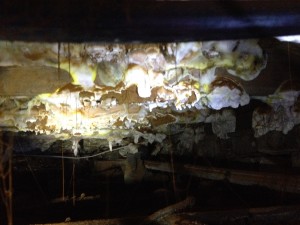
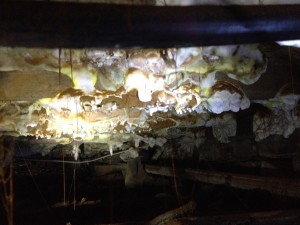
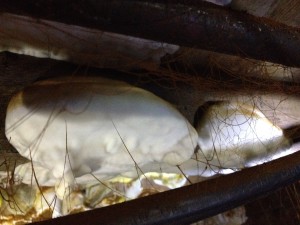
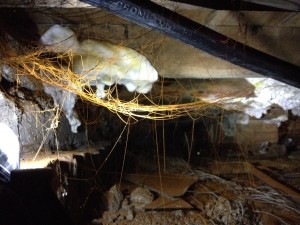
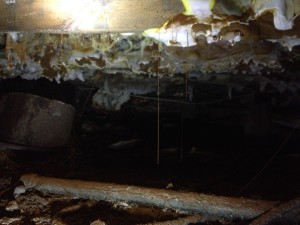
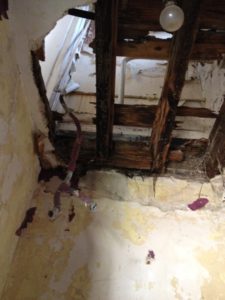
P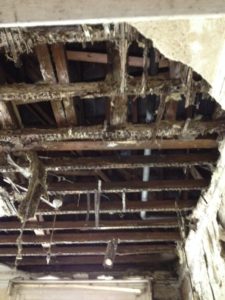
GOOD NEWS, I can help
If if you see anything even slightly resembling this
take a photo and leave a post
My kit
Over the last 36 years that I have been surveying timber framed buildings and timber structures I have accumulated a large number of trusty specialist testing and surveying tools .
I have also collected a set tools for making necessary access ( drills and board lifting equipment, ) within the constraints of any pre-described listing restrictions
Remote self powered lighting and photographic/ video recording equipment is also on occasion an essential documenting tool, particularly when inspecting voids and concealed places.
To minimise damage, an endoscope can be introduced into a carefully cut access hole to assess rot damage beneath flooring or behind panels
The need to travel extensively has meant prioritising my kit to being job specific, selecting from my available inventory of equipment what l consider essential to carry out an appropriate, self supporting survey in the specified building whilst conforming to the best health and safety standards.
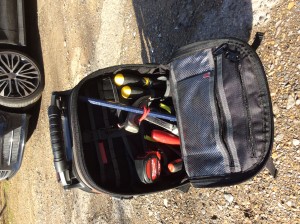
At every stage of a survey, health and safety are my priority, .
Before attending site
I will always have tried to read available reports and investigations by surveyors and engineers already obtained about the site as these are a vital source of health and safety information.
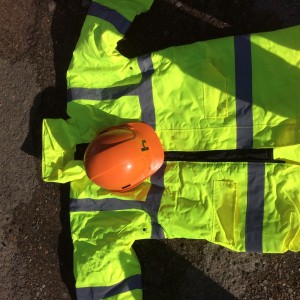
Day glow and hard hat
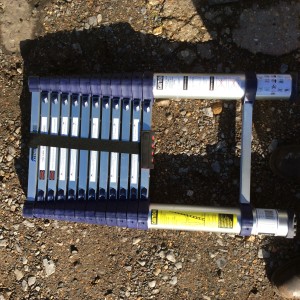
Telescopic ladder
For low level access and investigation work only
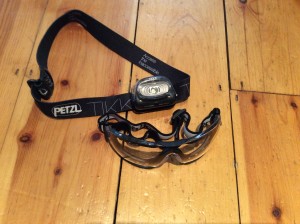
Head lamp and Eye protection ESSENTIAL
Special hazards may require special personal protective equipment (P.P.E.) in addition to the standard P.P.E. Equipment.
BE AWARE THAT CHEMICAL / ANIMAL CONTAMINATION may make the site unsafe until specialist DECONTAMINATION has taken place. A CLEAN AIR CERTIFICATE SHOULD BE AVAILABLE from the general contractor following the cleaning / decontamination process
As far as practicable I would make a risk assessment before site attendance or devise a health and safety plan in partnership with my health and safety consultant Mike kelly of Sirius safety (see below) to deal with the identified hazards.
Other persistent hazards may require that there are two people at all times on site during the survey.
I would also consider it essential to check for hazardous materials and unsafe structure information and notices related to the site.
In a later blog I will be showing you how dangerous an old house can ( see posting ” the one that got away “)
If you are undertaking this type of work serious injury and death awaits the casual or the unprepared. Care and extreme caution should be exercised at all times.
Finally , to inspect exposed internal / external roof frame members or high level structures I would insist the main contractor provide an on a certified scaffold tower and a labourer responsible for the towers safe movement.
if I attended a construction site and it appeared poorly run or a dangerous place to conduct a survey I would not work there.
If I saw any illegal or dangerous practices I would report this to the health and safety executive . This is a legal requirements and the moral responsibility to my fellow workers
I have a great relationship with a company called Serius Safety who help me with all my health and safety information risk assessment/ method statements ( RA/MS ) .
mike.kelly@seriussafety.co.uk.
Personal Protection Equipment in my surveying back pack
Hard hat ( in test )
Kevlar gloves
Safety glasses (x2)
Day glow fleece ,waist coat or jacket ( weather dependant)
Heavy work trousers (carhartt) and jacket ( carhartt) to protect against sharp edges
Heavy boots ( must be nail proof)
Head lamps (minimum x2 ) must have flashing function for emergency location
Mobile phone
Glow sticks ( x3)
Bottle of water ( 0.5ltr available at all times in back pack for eye irrigation )
pressure bandage
I would not carry out an isolated survey without all of the above as a MINIMUM.
I would also have prearranged phone calls to my office to keep them informed of my progress. If I fail to call, they call me. If they can’t get a response for an hour my colleagues would attend site before informing the emergency services .
This is interesting….
I have just returned from assessing a piece of furniture for evidence of fresh woodworm infestation ( in this case common furniture beetle or possibly death watch beetle).
An occasional and very interesting part of my work.
I would normally receive a phone call from a very worried storage facility manager when an item of stored furniture has either started clicking ( a good indicator of beetle activity) or turned to dust and collapsed ( a sign of very heavy and aggressive attack by beetle or decay).
I have also inspected when
Valuable pieces of furniture with holes consistent with beetle emergence are being purchased to check that no active beetle infestation is being introduced in to a home.
Recently I acted for a householders forum when new kitchen doors and frames had begun to exhibit signs of fresh beetle activity ( fresh holes and dust with beetle emergence.)
With regard to the first item, I can’t recommend much for collapsed furniture except burn it safely outside and clean the entire area for beetle and eggs.
Common furniture beetle can attack items of furniture only if a suitable site ( a minute cracking or crevice) at an appropriate moisture content can be identified by the flying beetle, normally however it would have been present and concealed during the production stage of the furniture and emerging post production.
If ANY SIGNS of infestation are present I would also strongly recommend caution. Activity levels can only be assessed by an EXPERIENCED PROFESSIONAL
Suspect items should always be checked and a written report should be produced by a specialist confirming findings. If any doubt exists, do not purchase the furniture.
Avoid buying furniture abroad and shipping home unless the supply chain is transparent.
I have seen very old furniture, particularly pianos collapse into piles of dust with active grubs causing a great deal of disturbance and distress.
With respect to the kitchen doors and frames. the kitchen company that sold them to my clients were completely liable. After a very short meeting on site they agreed to remove every trace of the kitchens to replace them.
The furniture that I looked at today?

The woodworm holes were fake. A decorative finish, the holes had been made from the outside with a punch. No treatment needed there!
My work is entirely down to observation not just looking but really seeing a building.
A detective charged with the duty of tracking every relevant exterior defect and determining the internal implications with respect to decay
Before even attending site, my research is everything
Listing issues, contact with local conservation officers and special interests groups should always be established.
Health and safety implications related to the general structural condition of the building are gravely serious issues and again investigation parameters would need to be established before attendance to the site.
TO WORK ON A LISTED BUILDING WITHOUT APPROPRIATE PERMISSION CAN BE A CRIMINAL ACT.
If ever in doubt CHECK
My site process begins with an exterior walk to assess the general layout and condition of the structure and to assist in forming a three dimensional view of the relevant exterior issues.
I would normally focus on defective rainwater goods ( gutters downpipes, surface drainage and roofing ) as these would be a good indicator of potentially problematic internal areas.
( see photographs below )


Typical concealed decay in brickwork pockets caused by defective exterior rainwater goods
Every exterior detail on a building is part of a picture that becomes an interior story during exposure works.
This story will often also include a detailed photographic narrative which can be kept as a permanent record and lodged with the relevant conservation body .
Having provided a health and safety plan (HSP) including risk assessment and method statements (RA/MS) I would carry out the necessary remedial treatments to P.C.A. ( property care association ) B.W.P.D.A. ( British would preserving and dampproofing association) standards . All materials would be covered by the control of substances hazardous to health (C.O.S.H.H.) This would normally produce a long term insurance backed guarantee.
To work on any project big or small, is to attain an intimate knowledge of the structure which remains with me long after the project is over.
As far as practicable I would ensure reinstatement to the original builder’s vision, to enhance and not to alter it, with minimal impact on the building Itself .
Most importantly I see my aim as to dispel myths and put minds at ease
Jonathon Lewis

I have been working in building restoration and specialist timber surveying for nearly 40 years
I have worked as the courts expert in insitu michology / beetle infestation and dampness related defects in historic and modern buildings . Historic and modern building methods and materials.
Treatment (methods and materials)of fungal decay/ beetle infestation in historic and modern buildings
Expert in timber frames structures , ancient and modern commercial and residential
I have undertaken an historic record of listed buildings for English heritage and Welsh equivalent for permanent record
10 years representation on remedial treatment committee section of the British wood preserving association ( now the PCA) devising standards for materials and application methods
Chelsea hospital refurbishment consultant
Holborn magistrates court conversion into hotel
consultant / contractor
Wilsden magistrates conversion to residential
Consultant / contractor
Greyhound hotel Dorset
Consultant /Contractor
350 listed building refurbishments with JD wetherspoon supervising specialialist surveyor consultant/contractor
Working over the uk including Scotland and western isles.
Familia with numerous regional building techniques and styles
CLIENT LIST
Ministry of defence
MOD ( ministry of defence security approved specialist)
Pizza express
Heathrow airport
Tavern pubs
JD wetherspoon
Church of England
Salvation Army
United synagogue
U.K. Spiritualist church
24 month secondment PJ Livesy oversee develop of 200 unit conversion of listed building in to residential
Secondary conversion of ancient water mill into residential .
Consultant surveyor on conversion of Lancaster moor hospital in Lancashire to 400 residential units
English heritage
Heston house
Portsmouth sailors mission , conversion to hotel
In addition
Approximately 3000 residential surveys
Over 36 years buildings ranging from new build to 900 years old
Barn conversions
Expert witness with court recognised expertise in uk , e.u.
and North America .
Member institute of wood science
Guest lecturer at Buckingham college of furniture manufacture.
Arbitration reccomended expert in disputes between contractors and clients. Specific knowledge of long term guarantees and legal responsibility
Expert in related health and safety , risk assessment , method statements (COSHH , RA / MS)

After nearly 40 years in the insitu remedial timber treatment industry I have a real desire to share my experience of investigating, assessing and eradicating dry rot in buildings ranging from from the Victorian two bedroom terrace to the listed Historic Manor House or monument.
My aim is to remove the fear and help people to look after their homes with a few simple guidelines that in the long run may save their biggest investment or the loss of a valuable historical monument due to dry rot .
My work takes me all over the UK and North America and in future blogs I will take you into the full range of my investigations and experience .
I will also be helping you to deal with insurance companies and interpretation of policies with respect to making successful insurance claims related to dry rot
look out for future blogs about long-term guarantees issued by Remedial treatment companies and making claims
I’ve learned a thousand lessons , so you don’t have to
Jonathon Lewis CTIS ( certified timber infestation surveyor)
Associates institute of wood science
Member of the PCA property care associatio
Committee member insitu timber treatments and formulations